The Rise and Fall of Telltale Games
A look into the history of a company that rose so high and fell so far.
This article first appeared on USgamer, a partner publication of VG247. Some content, such as this article, has been migrated to VG247 for posterity after USgamer's closure - but it has not been edited or further vetted by the VG247 team.
Telltale Games isn't entirely dead yet, but the studio has been gutted and the prospects are dim. Last week, the studio laid off most of its staff, sending 225 developers home without any severance pay and leaving a skeleton crew of 25 to finish outstanding projects. It's a horrible end to a developer that popularized an entire style of game, and that ending will be fodder for discussion for some time.
Instead, let's look back at where Telltale Games came from. How this indie studio rose from a small ragtag team of developers to a studio with over 250 employees, handling some of the world's biggest licenses, and then fell into a mire of mismanagement and poor releases.
Rising From Cancellation
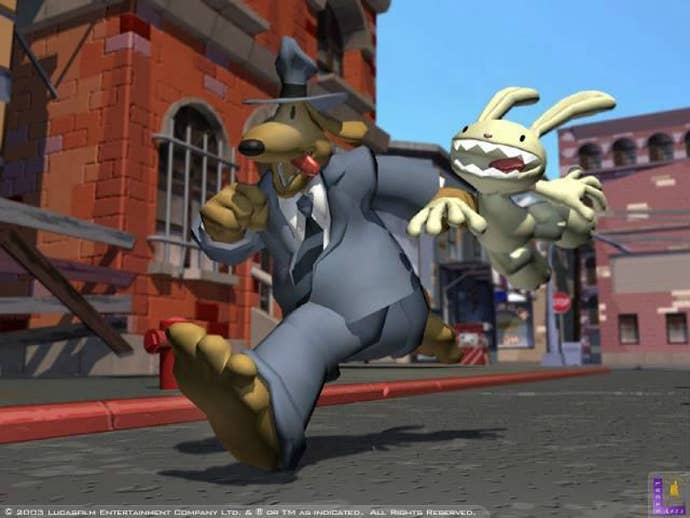
Telltale Games actually rose out another set of severe cuts. Way back in 2004, LucasArts was trying to find its way forward. At the time, its titles were a mix of internally developed games and outsourced projects. In the 90s, the studio made a name for itself crafting point-and-click adventure games, including classics like The Secret of Monkey Island, Indiana Jones and the Fate of Atlantis, Maniac Mansion: Day of the Tentacle, and Sam & Max: Hit the Road. The company had messed with some Star Wars titles, but it wouldn't be until the late 90s/early 2000s that LucasArts began to truly rely on the property.
With the growth in Star Wars games, the publisher started to rely less and less on the adventure games that had sustained it for so long. The sequel to Full Throttle, entitled Hell on Wheels, was cancelled in August of 2003. Sam & Max: Freelance Police, the sequel to Sam & Max Hit the Road, found itself cancelled within its planned early 2004 release window.
"After careful evaluation of current market place realities and underlying economic considerations, we've decided that this was not the appropriate time to launch a graphic adventure on the PC," said LucasArts acting general manager Mike Nelson at the time.
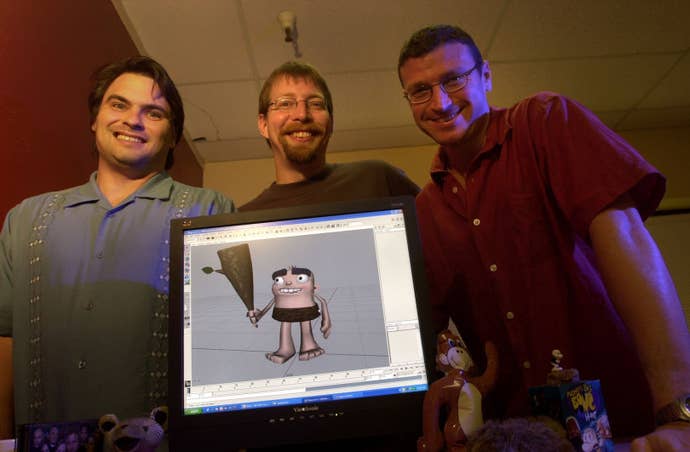
A month after the cancellation of Sam & Max: Freelance Police, Lucasfilm vice president of marketing Jim Ward was appointed president of LucasArts and his first move was to clean house. He cut staff from 450 employees to 190 and cancelled a number of titles in development. LucasArts wasn't in the business of making adventure games anymore.
A group of former LucasArts employees who had been working on Sam & Max: Freelance Police decided to strike out alone. Kevin Bruner, Dan Connors, and Troy Molander founded Telltale Games in July 2004. The studio was meant to keep the adventure game dream alive.
"When it comes to storytelling in games, we see a solid foundation provided by the high quality adventure game legacy of Infocom, Sierra, and LucasArts," said Connors in the studio's first press release. "Our goal is to build on that, with the new and exciting opportunity that is brought to the market by the phenomenal, story focused licenses that exist in film, comics, literature, and television."
First Episodes
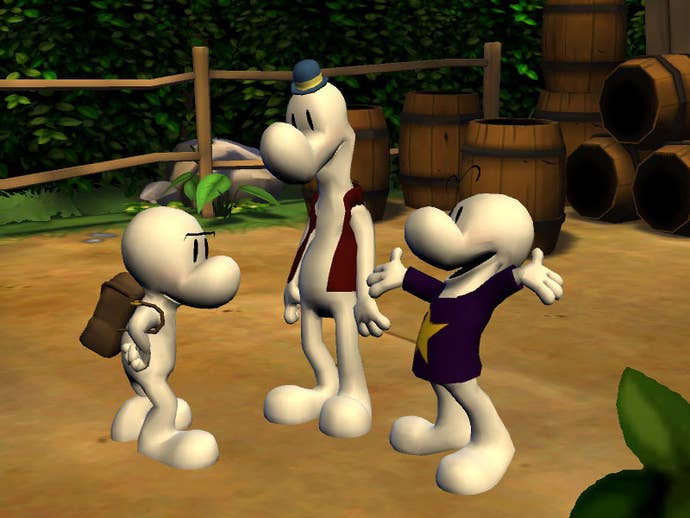
Telltale went to work on its own game engine, the Telltale Tool. The studio released its first game, Telltale Texas Hold'em, only a year later as a test of its development tools. In early 2005, Telltale would announce its first licensed game: Bone, based on the independent comic written and illustrated by Jeff Smith.
Bone was planned as an episodic release, the release model the company would come to be known for, with Telltale giving players a chunk of the story content every few months. The first episode, Bone: Out from Boneville, was released on September 2005, followed by the second episode, The Great Cow Race, in April 2006. Following that release, Telltale Games just... moved onto other things. (Bone is actually one of the few Telltale games not listed on the official website.) These other projects included a series of licensed games based on the CSI television show and the brewing Sam & Max title.
"We've been really focused on Sam & Max and nailing the episodic model. This has helped the company better understand digital distribution, and we're in a great position to take advantage of the Bone license, but our teams are very busy right now. As the company grows we will revisit Bone," said Connors in a now-defunct interview with 4ColorRebellion.
Bone was never officially cancelled, but the studio never worked on the series again. Telltale made the CSI games to keep the lights on, but Sam & Max was the prize. It was the property that brought the founders together and the one that led to the formation of the studio. Telltale tried to pick up the rights from LucasArts, but found themselves rebuffed. Instead, Sam & Max creator Steve Purcell waited until LucasArts' option on the rights expired in mid-2005 and licensed them directly to Telltale.
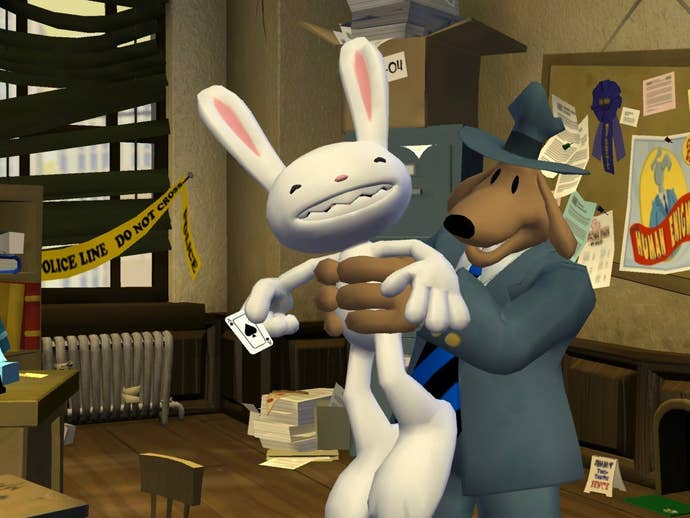
Things moved quickly, with Sam & Max: Season One (later renamed Sam & Max Save the World) being announced in September 2005. While Telltale Games had used the episodic format for Bone and CSI, Sam & Max was the first real test of the studio's commitment to the model. It was developed and released on a monthly schedule, so players didn't have to wait too long for the next episode. And Purcell was directly involved in Season One's development, allowing Telltale to release a game much closer to his original comics.
Sam & Max Save the World was a wild success for the company. The studio at the time was a leaner, meaner Telltale Games, one which didn't have to sell a million copies to keep the lights on.
"Sam & Max has a very strong, devoted, and peculiar fanbase, both the comics and the game have that, and that's actually pretty good for us. We work small enough that we don't need to have the license that's the biggest movie of the year because we're spending $20 million on the game and so everybody in the world has to buy it in order to do it. If we just have kind of a small devoted fanbase, we can make something that's kind of personal and fun," said Sam & Max lead designer Dave Grossman to Gamasutra in July 2006. "I'd say we're not really specifically aiming at a small audience or anything, we just kind of tend to like licenses that are maybe a little bit peculiar, that maybe wouldn't work for other companies."
The Adventures Continue
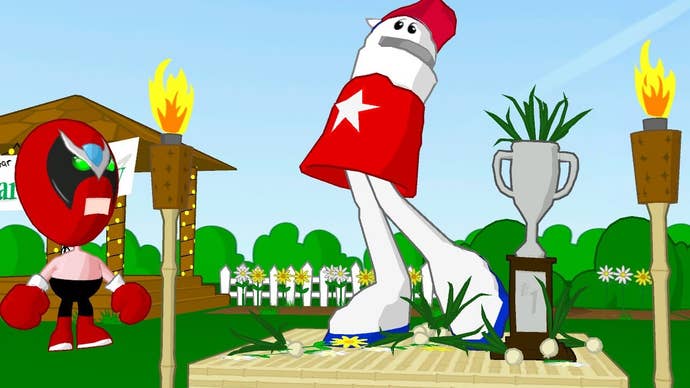
Telltale followed Save the World with a second season, Sam & Max Beyond Time and Space. Like the first season, it was five episodes, developed for release on a monthly cadence. Beyond Time and Space was another critical and commercial success for Telltale Game, opening new doors, like an expansion to console releases. Sam & Max Save the World came to the Nintendo Wii in October 2008, after Beyond Time and Space finished its run on PC. Atari picked up the second season for a worldwide retail launch in 2009, and Telltale Games brought the first season to Xbox 360 in the same year.
With its business model working out, Telltale began to branch out to other popular, off-beat licenses. Strong Bad's Cool Game for Attractive People, based on the Homestar Runner webtoon, came out in 2008. Wallace & Gromit's Grand Adventures was developed in collaboration with Aardman Animations based on the clay animated series.
Over at LucasArts, Jim Ward hadn't lasted long as president, and the publisher appointed Darrell Rodriguez to the position in 2008. Rodriguez believed in the old LucasArts adventures, so a deal was struck with Telltale Games for the license to another classic. In late 2008, development began on the game that would become Tales of Monkey Island. Sam & Max launched in an era of increasing digital distribution, but Tales of Monkey Island's revival hinged on the ability to simply and easily release games on multiple platforms digitally.
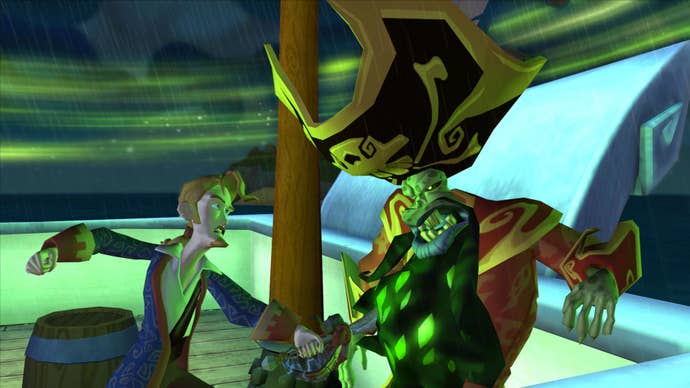
"Well, digital downloads have finally gotten going; I think that's a major factor. With Xbox Live taking off the way it has, I would think that would be a major factor. There are so many things that go into it – it's a perfect storm!" LucasArts web producer Brooks Brown told IGN at the time.
Tales of Monkey Island's run for five episodes stretched from July to December of 2009, with Telltale offering the game on its own website, Steam, and Amazon. Over the course of 2009 and 2010, it would come to the Wii, PlayStation 3, OS X, and iOS. Telltale Games had cornered a market-few developers were delivering classic-style adventure games-and the studio was thriving. Telltale delivered another two CSI games for Ubisoft, the final Sam & Max season, and a few standalone titles like Puzzle Agent and Poker Night at the Inventory.
Telltale Games continued to dream big. In June 2010, the studio signed a deal with Universal Pictures to create games based on Back to the Future and Jurassic Park.
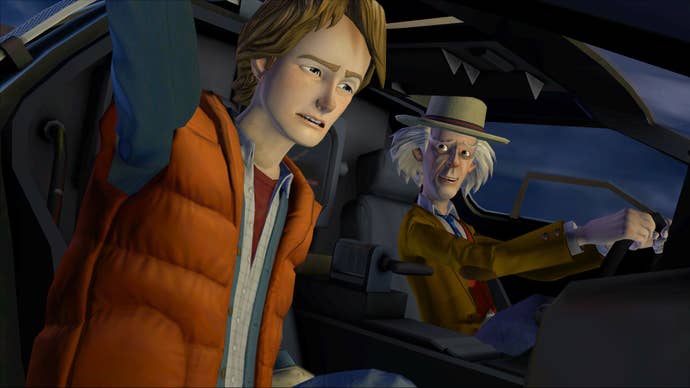
"Our partnership with Universal is an exciting next step in our continued growth as a mass-market games publisher and developer," said Connors in the press release. "We are all huge fans of both of these franchises."
Back to the Future trilogy co-creator, co-writer and co-producer Bob Gale was brought on to consult with the game's plot, which was supposed to dovetail with the story told over the three films. Christopher Lloyd returned to voice Doc Brown, while both Lloyd and Michael J. Fox allowed their likenesses to be used. Universal bet heavily on the game, including a voucher for the first episode of Season One with every copy of the Back to the Future 25th Anniversary Trilogy's Blu-ray release on October 26, 2010. The first episode of Back to the Future: The Game launched on December 22, 2010 for PC and OS X, with later releases on PlayStation 3 and iOS. It eclipsed Tales of Monkey Island as Telltale's best-selling series.
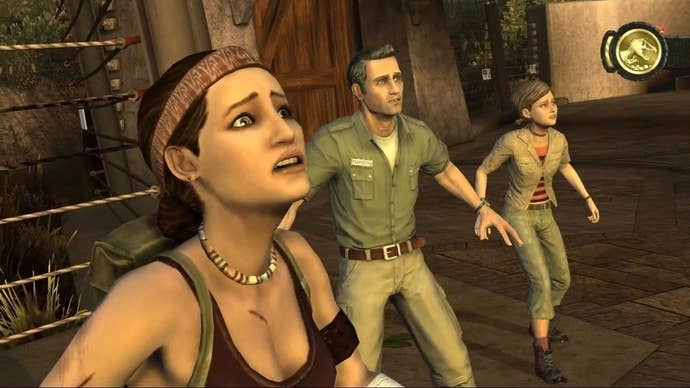
The second game in the Universal deal, Jurassic Park: The Game, would come a year later. Jurassic Park: The Game offered branching story paths and it was the first Telltale title where the player could be killed, the no-kill rule being a holdover from LucasArts. Telltale's Jurassic Park was less focused on point-and-click adventure game puzzles and more on character drama. It also offered more action, kicking off the quick-time events that would become a studio staple. Jurassic Park didn't quite work, though. Flipping between the cast happened too frequently to get attached to any one character, and there were situations where the player would have to control the responses of two different characters in a discussion.
But Jurassic Park: The Game was an important release in terms of Telltale's history, as it was the first entry to experiment with the presentation style that would become its signature in the coming years. Nevertheless, the experiment was unsuccessful, with mixed reviews and middling sales. (Telltale actually found itself in a controversial position when it was discovered that employees were writing positive reviews of Jurassic Park on Metacritic without disclosing their employment.)
Walking (Dead), Then Running
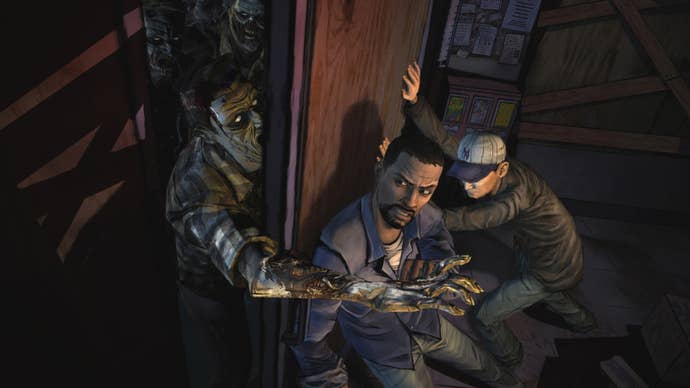
In 2011, the same year as Jurassic Park's release, Telltale Games announced two deals. The first was with Warner Bros for the rights to the Fables comic series. The second involved The Walking Dead, a comic series that had come to AMC in a live-action adaptation a few months earlier. It was a popular show to say the least. Telltale's deal was with The Walking Dead creator Robert Kirkman, covering multiple games over multiple years.
"I played their Strong Bad game. I like their approach to puzzle-based storytelling. I thought they were more focused on telling a good story, and I thought they were good at engaging the player in the narrative. That's what interested me in making a Walking Dead game," Kirkman told GameInformer. "When Telltale came and told me about the way that making decisions changed the game and the way that players would be forced to choose between two bad decisions and how the survival aspect of The Walking Dead would actually be brought to the forefront – that's when I was sold on the game."
Like Jurassic Park, characters could die and the player's choices frequently determined who would make that sacrifice. Unlike Jurassic Park, you were inhabiting the point-of-view of a single character, criminal and former professor Lee Everett. Your choices carried forward from episode to episode, so your group of survivors could be vastly different from others. Telltale played this up with an online feature that would show you the choices other players made.
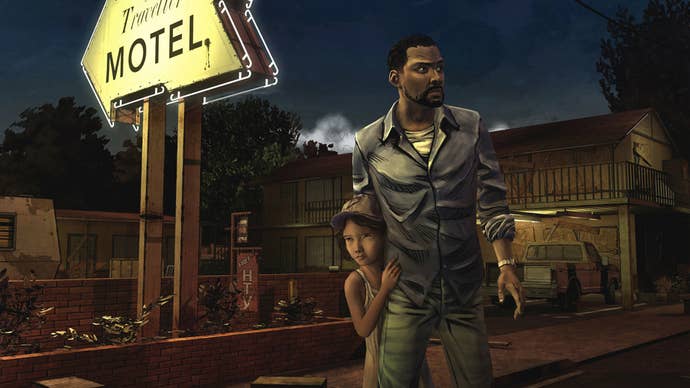
Fans and critics loved Telltale's version of The Walking Dead. It captured the dire tone and relentless despair of the comics and television series, but the player had the ability to make all the choices. The Walking Dead also nailed the characters, offering up memorable first appearances for Lee, Kenny, and Clementine, who would go on to become a focus for the series as a whole. The first season successfully sold the illusion of a branching storyline where your decisions really mattered.
The Walking Dead was another critical and commercial success for Telltale Games, becoming one of the biggest titles in the company's entire history. It was the turning point; from then on all Telltale Games resembled The Walking Dead in composition and mechanics. Much like LucasArts turned away from the classic point-and-click adventure game in 2003, Telltale Games did the same in 2012. Telltale would follow The Walking Dead with multiple entries: The Walking Dead: 400 Days, The Walking Dead: Season Two, The Walking Dead: Michonne, The Walking Dead: A New Frontier, and the wandering-in-limbo The Walking Dead: The Final Season.
Big Names, Big Crunch
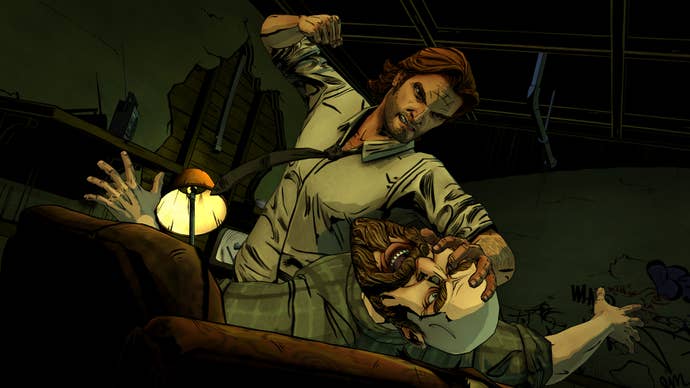
This era of Telltale continued to aim for major licenses. The Fables game, The Wolf Among Us, saw many of the same accolades as The Walking Dead. Tales from the Borderlands was an odd and interesting license for the company, but resulted in one of its fan-favorite titles. Game of Thrones, Minecraft: Story Mode, Batman: The Telltale Series, and Guardians of the Galaxy: The Telltale Series; Telltale Games was scooping up some of the biggest licenses and giving them the Telltale spin.
There were problems, though. Working on so many series seemed to be spreading the company thin. Game of Thrones, Batman: The Telltale Series, and Guardians of the Galaxy: The Telltale Series premiered to mixed reviews. Fans and critics had begun calling on Telltale to update its engine, which was showing its age, rife with poor performance and numerous graphical glitches.
"We've basically built the studio to handle up to four Telltale series at the same time, with a little extra for special projects. The productions are staggered so each project is in a different stage at any time. Pretty much everyone here ends up working on every project at some point, so our biggest challenge is coordinating how the projects are flowing through the studio. Last year we really put so much work into that aspect of the studio, and I think you'll see that pay off with this year's line up," co-founder and former CEO Kevin Bruner told Raygun Brown in 2016.
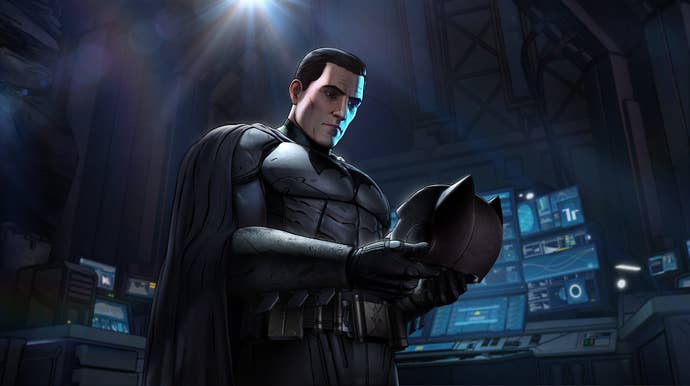
This constant development led to a studio that was always crunching under the stewardship of Bruner and other managers. Deadlines were ever-present, heavy rewrites on games were always coming down the pipeline, and feedback from management and rights holders could be inconsistent.
"[Sometimes] team leadership would push through [with rewrites] anyway for one of many reasons-time, prestige, actual belief in subpar ideas. And it would always come back on them in the end. We'd always eventually fix the product. But late fixes were deeply disruptive. [...] [These problems] could have been avoided by better decisions earlier in the process," one source told USgamer after a series of layoffs in late 2017.
"The pace at which the studio operated was both an amazing feat and its biggest problem. Executives would often ask teams to rewrite, redesign, recast, and reanimate up until the very last minute without properly adjusting the schedule. The demands on production only became more intense with each successful release, and at some point, you just don't have anything left to give," another anonymous source told The Verge in a similar report.
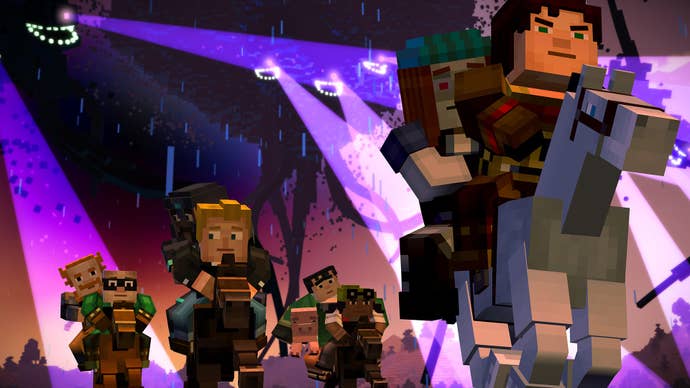
Worse, as quality was dropping and the studio was mired in crunch, none of these titles were apparently leading to profit at the company. According to recent tweets from Forbes contributor Joe Parlock, an anonymous source told him that most Telltale projects weren't making money for the studio. Minecraft: Story Mode, the first season of The Walking Dead, and the Telltale published 7 Days to Die were the only things that were working out. Batman: The Telltale Series was reportedly "one of the worst commercial failures" for the company. Game of Thrones, Tales From the Borderlands, Wolf Among Us, and Guardians of the Galaxy were all financial failures.
Despite all these problems, things were looking up on the surface. Bruner was ousted at the company in early 2017. At E3 2018, Telltale Games and Netflix announced a deal for an interactive project based on Minecraft: Story Mode and a game based on Stranger Things. Telltale's new CEO, Pete Hawley, was seen as a fixer for the company's problems, and The Walking Dead: The Final Season was going to be the last game developed on the studio's old engine. Stranger Things would be moved to Unity.
"Pete Hawley has quickly restored Telltale Games to its former position of innovation and leadership in choose-your-own-narrative interactive storytelling," Telltale Games board member and Lionsgate president of interactive ventures, games and digital strategy Peter Levin told Variety.
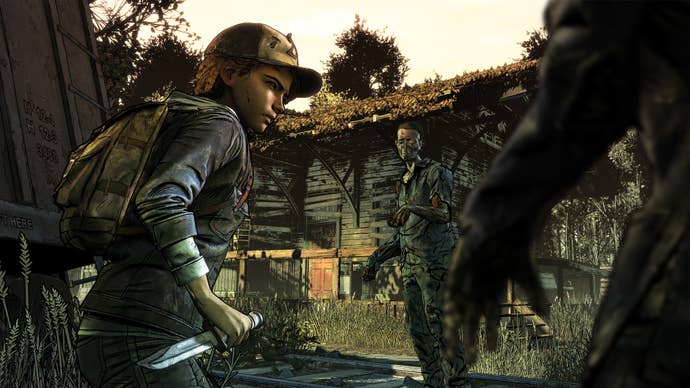
Despite that apparent upswing, last week saw Telltale fire 225 employees without any severance. The money had dried up and cuts were needed to keep the doors open and finish the Minecraft: Story Mode project for Netflix. It's unlikely The Walking Dead: The Final Season will be finished, though Telltale recently revealed that it's looking into partnerships to finish the series.
"The company was working diligently to close a round of financing," Telltale co-founder Dan Connors told Variety yesterday. "Unfortunately, when the last potential financial backer abruptly pulled out, we were left in a position where we had no choice but to stop production. Sadly, everyone was so focused on doing what was required to keep the company going that when the last potential partner backed out, there were no other options."
And with that, a studio that started with such promise and grew to be a major force in the industry, quietly limps towards death. The story of Telltale Games isn't entirely over, but there's an air of finality over the studio now. All that's left is to lament the promise of what was and what could've been.

